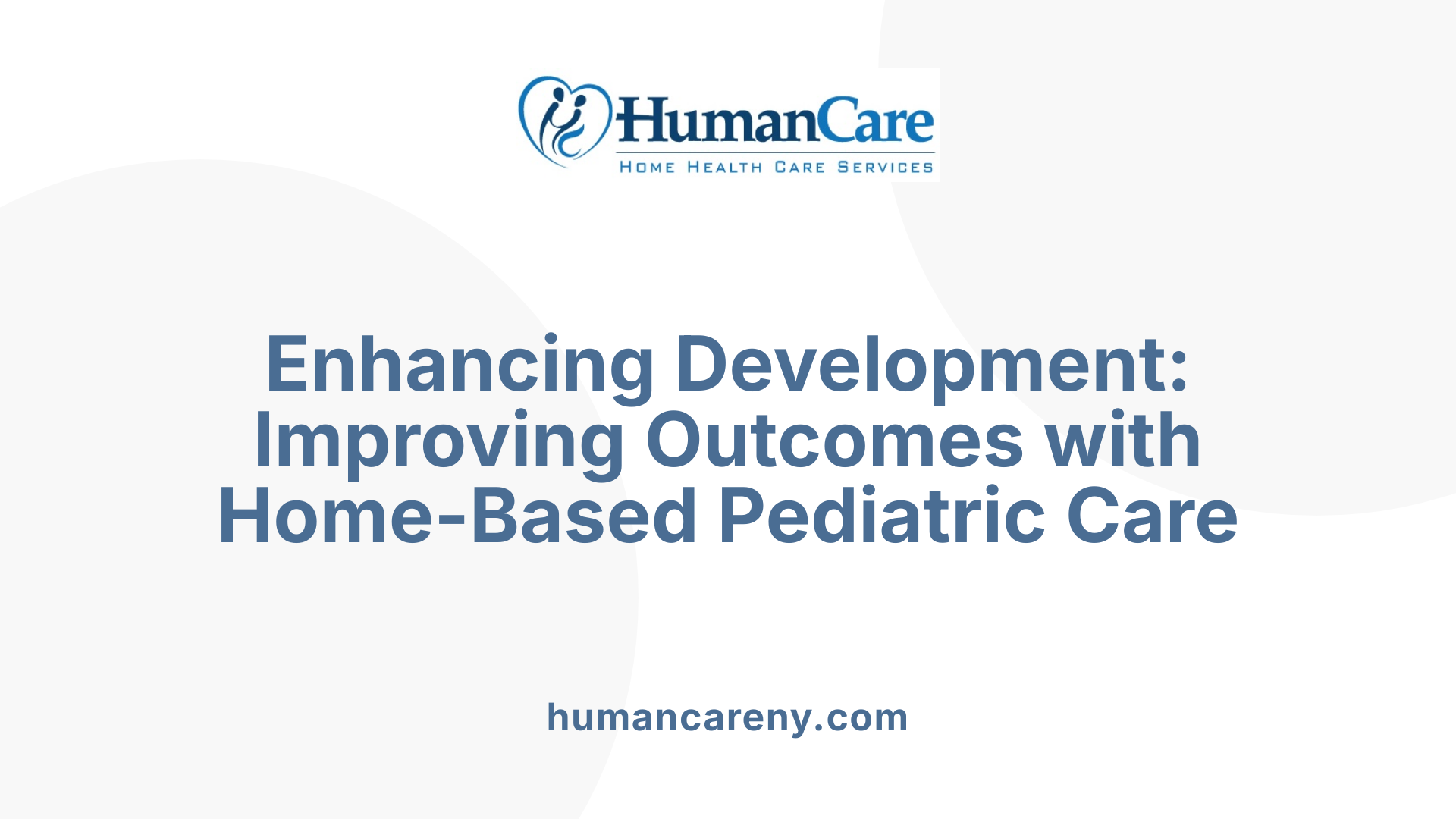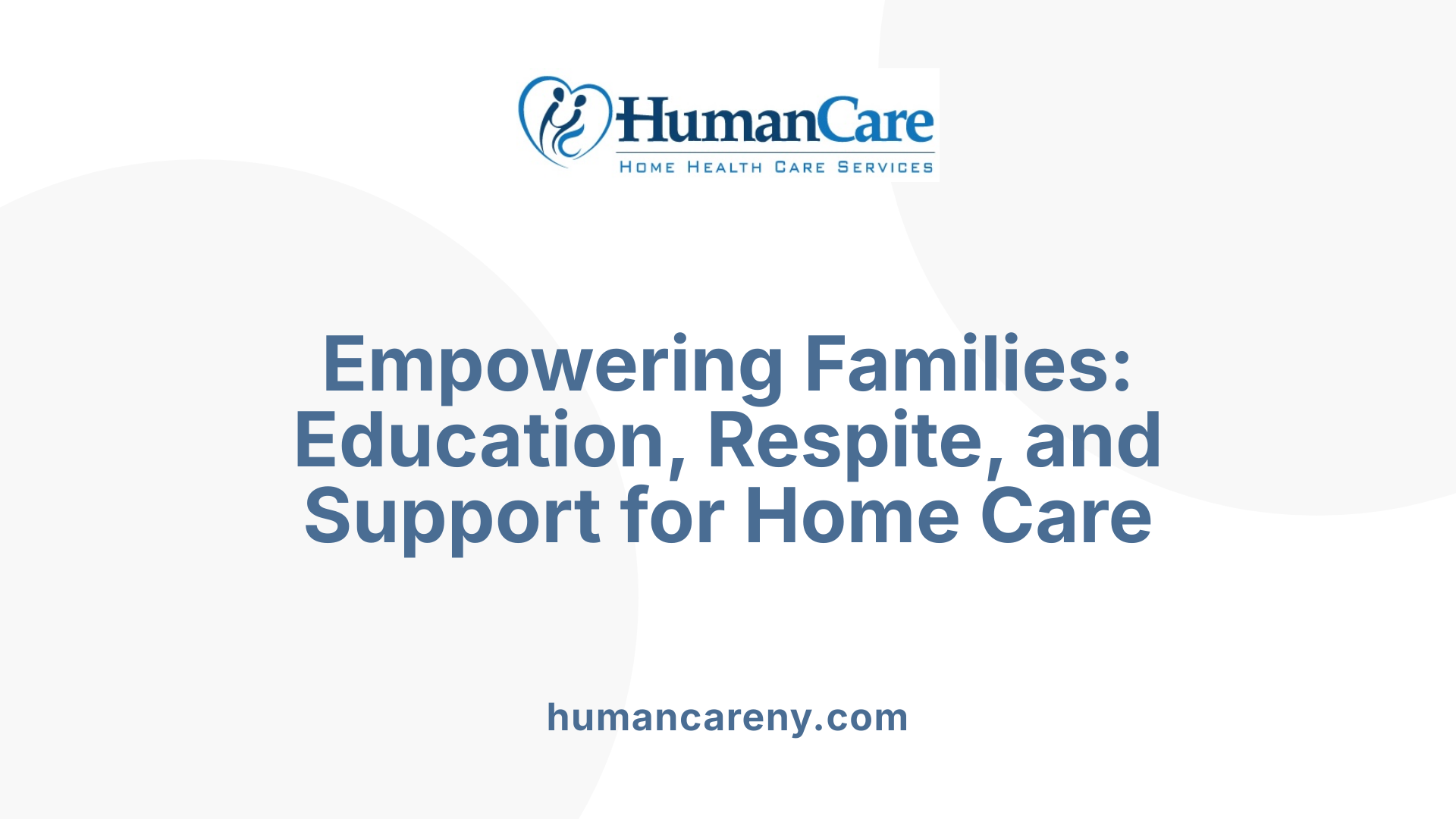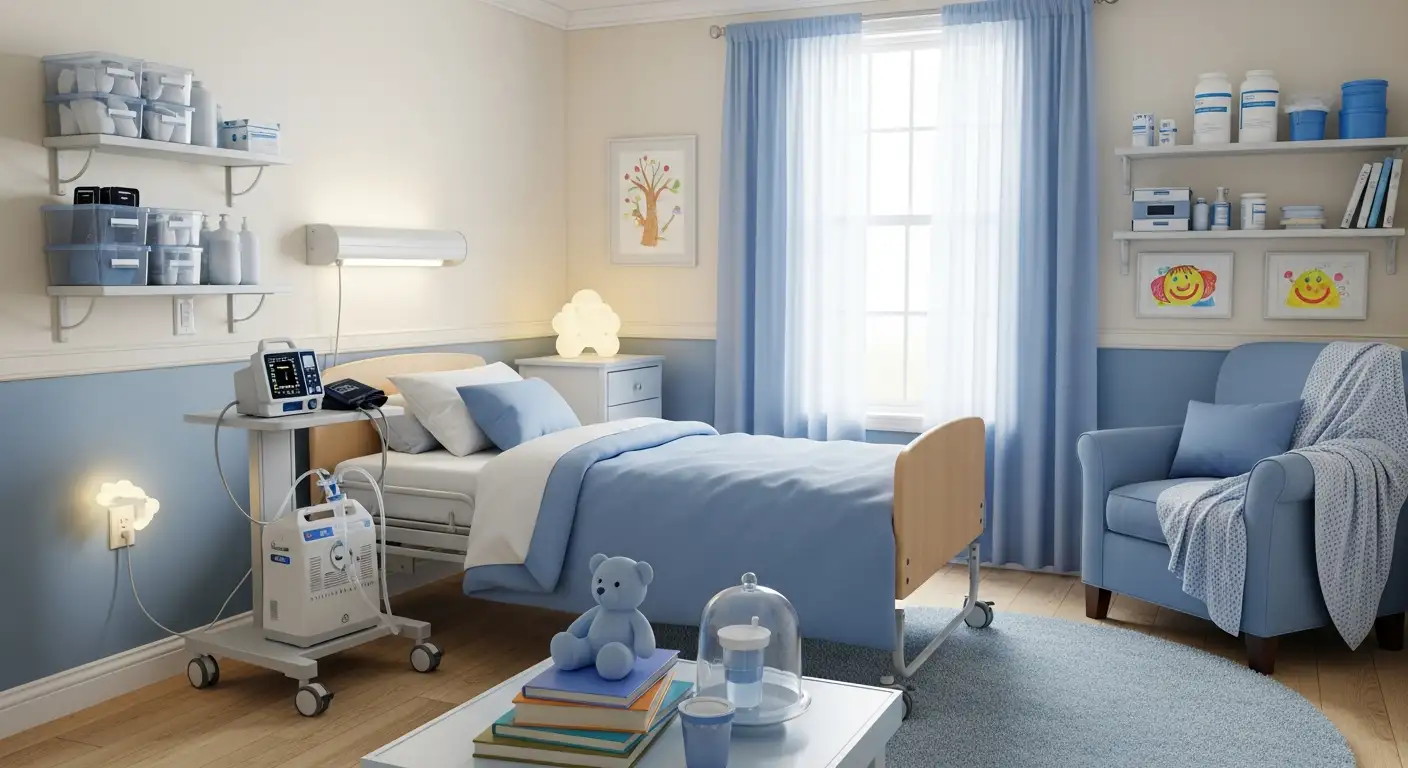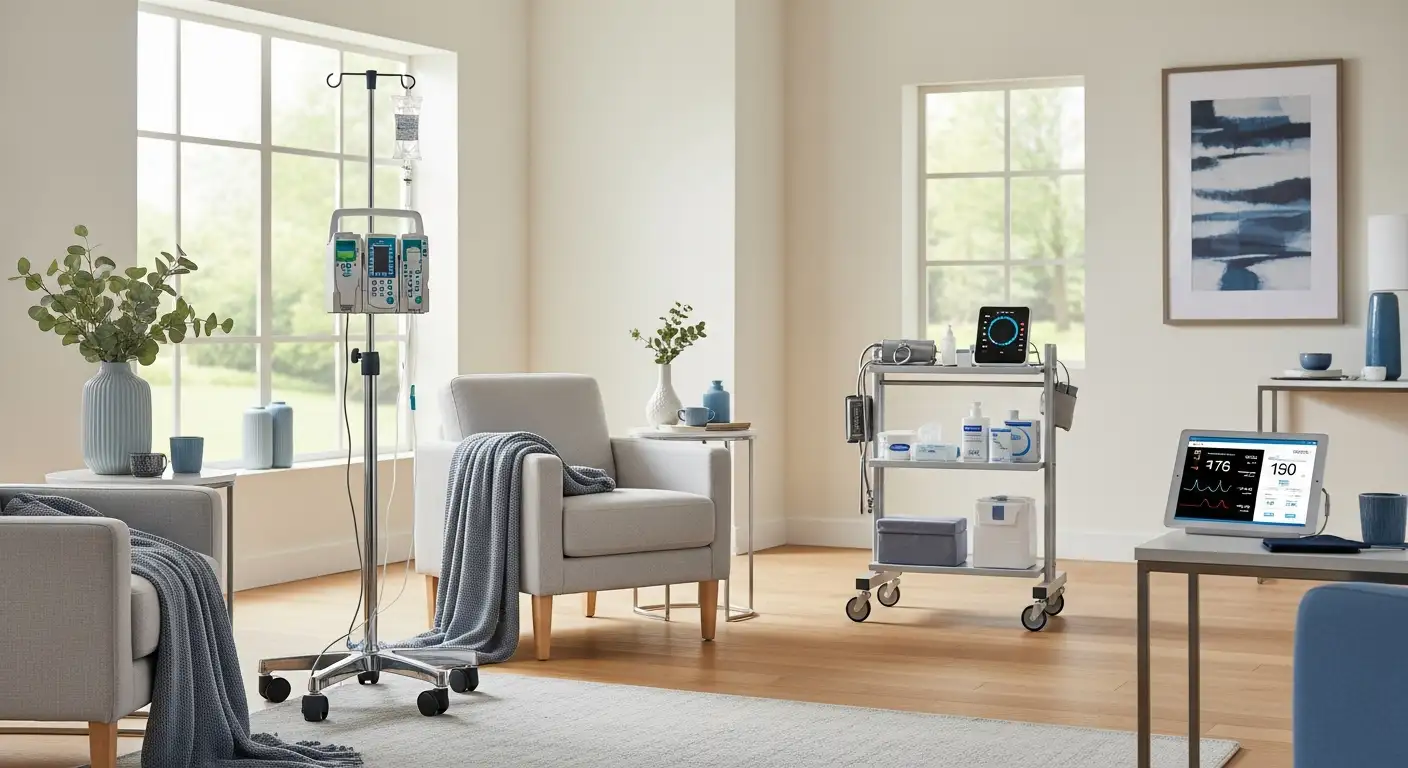Understanding Pediatric Home Care: An Essential Resource for Complex Medical Needs
Pediatric home care is a vital healthcare service that delivers specialized medical treatment to children with complex health conditions within the comfort of their homes. This approach not only promotes faster recovery and better health outcomes but also enhances emotional well-being, supports developmental milestones, and strengthens family dynamics. As the demand for comprehensive, family-centered healthcare increases, understanding the scope, benefits, and challenges of pediatric home care becomes essential for families, healthcare providers, and policymakers alike.
Personalized, Family-Centered Medical Services in the Home Environment

What types of services are included in pediatric home care?
Pediatric home care encompasses a wide range of medical and supportive services tailored to meet each child's unique needs. These include skilled nursing care such as medication administration, wound management, respiratory support—including ventilator and tracheostomy care—and infusion therapies. Additionally, services like occupational, physical, and speech therapy are provided to support developmental progress. Families also receive education and training to manage medical devices and emergency procedures, empowering them to care confidently for their child. Further services like nutritional support, psychological assistance, and palliative care may also be offered, all aiming to promote comfort and health at home.
How are services tailored to individual children’s needs?
Care plans in pediatric home health are personalized based on comprehensive assessments of the child's medical condition, developmental stage, and family circumstances. Interdisciplinary teams—including nurses, therapists, and social workers—collaborate to develop care strategies that address specific health issues and developmental goals. These plans are flexible and regularly reviewed to adapt to changing medical needs. Environmental assessments are also conducted to ensure safety and accessibility, and equipment such as feeding pumps or mobility aids are customized for each child. Tailoring services in this way ensures that care is not only effective but also minimally disruptive to the child's daily life, promoting a sense of normalcy and independence.
Why is a multidisciplinary team approach important?
A comprehensive pediatric home care model relies on a team of diverse healthcare professionals working together to deliver seamless care. This multidisciplinary approach allows for the integration of medical, developmental, and emotional support, ensuring all aspects of a child's well-being are addressed. Nurses coordinate with doctors, therapists, and social workers to create and execute care plans, monitor progress, and make necessary adjustments. Family members are active participants, receiving education and coaching to handle daily medical tasks. This team-based approach enhances communication, reduces gaps in care, and improves health outcomes, ultimately ensuring children with complex medical needs receive holistic care that supports their overall development and quality of life.
| Service Type | Description | Typical Providers |
|---|---|---|
| Skilled Nursing | Medication, device management, wound, respiratory support | RNs, LPNs |
| Therapeutic Services | Physical, occupational, speech therapy | Therapists |
| Family Education & Training | Teaching caregivers specific medical procedures and device handling | Nurses, social workers |
| Nutritional Support | Feeding tube management, dietary planning | Dietitians, nurses |
| Psychological & Supportive Care | Emotional support, counseling | Social workers, psychologists |
This comprehensive, tailored approach to pediatric home health services ensures children receive attentive, effective care within a familiar environment, fostering better developmental and health outcomes.
Understanding Eligibility and Access to Pediatric Home Care Services

What should families know about the services and eligibility criteria for pediatric home care?
Pediatric home health care provides personalized medical services directly in a child's home, making it especially valuable for children with chronic illnesses, recovery needs post-hospitalization, or complex medical conditions requiring ongoing attention.
Families should be aware that access to these services begins with a referral from the child's healthcare provider. This referral process involves a detailed medical assessment, discharge planning, and evaluation of the home environment to ensure safety and appropriateness for receiving care.
Services offered in pediatric home healthcare vary widely. Common treatments include nursing care, physical and occupational therapies, respiratory support, infusion therapies, and assistance with medical devices such as ventilators or feeding tubes. Family education on managing medical equipment and emergency protocols is also a critical component.
Eligibility criteria are generally based on the child’s medical condition and need for ongoing care. Children requiring respiratory management, neurodevelopmental support, or specialized interventions typically qualify. For example, children dependent on ventilators, those recovering from serious injuries, or children with genetic or neurological disorders are common candidates.
Funding sources, such as Medicaid’s Child and Family Medical Home programs, play a fundamental role. Medicaid often covers pediatric home health services, especially for children with significant medical complexity. Private insurance may also cover these services, but coverage varies among carriers and plans.
However, there are challenges. Workforce shortages, especially of trained pediatric nurses, funding limitations, and insurance restrictions can create barriers to access.
Families should work closely with their child's healthcare team to understand coverage options, complete necessary paperwork, and navigate the enrollment process. This collaboration helps ensure that children receive timely, appropriate care tailored to their unique needs.
In summary, understanding the eligibility criteria and navigating the logistical pathways are essential steps for families seeking pediatric home health services. Proper planning and advocacy can significantly improve health outcomes and quality of life for children with complex medical needs.
Enhancing Child Health and Development through Home-based Care

How does pediatric home care improve health outcomes for medically complex children?
Pediatric home care plays a vital role in boosting health results for children with intricate medical conditions. By offering continuous, customized management directly in the child’s familiar surroundings, this care approach helps prevent health complications and decreases the likelihood of hospital readmissions. Regular monitoring by skilled pediatric nurses enables early detection of emerging health issues, allowing prompt and effective interventions.
Families are often actively involved in the child's care, which enhances emotional stability and reduces distress. Access to advanced medical technologies—such as ventilators, feeding tubes, and specialized therapies—at home supports improved functional outcomes and overall quality of life. While workforce shortages and disparities pose challenges, high-quality home care has been linked to greater satisfaction among families, improved psychological well-being, and more efficient healthcare utilization.
This level of personalized care ensures that children not only survive but thrive, with better management of their chronic conditions and an increased chance for reaching developmental and health milestones. As a result, pediatric home health care significantly contributes to the long-term health prospects and well-being of children with complex medical needs.
Support for developmental milestones
Home-based pediatric care actively fosters developmental growth by integrating therapies such as physical, speech, and occupational therapy into daily routines. Caregivers, guided by healthcare professionals, can support language acquisition, mobility, and social skills in a familiar and supportive environment.
Customized care plans emphasize early intervention that promotes cognitive development and emotional resilience. For children with disabilities or neurodegenerative diseases, consistent therapeutic activities help achieve essential milestones, reduce delays, and improve overall functioning.
Additionally, being in a home setting allows children to participate in normal activities like schooling and play, which are critical to developmental progress. The involvement of families in therapy and daily care routines further reinforces developmental gains, ensuring that children reach their full potential.
How home care reduces hospital readmissions
One of the significant benefits of pediatric home health care is its ability to lower hospital readmission rates. Regular, proactive monitoring of the child's condition allows healthcare providers to promptly address health issues before they escalate.
Home care reduces the need for emergency room visits by managing concerns early and providing timely interventions. It minimizes hospital stays by supporting children to recover and stabilize in the comfort of their home environment. This not only eases the emotional and physical stress on children and families but also reduces healthcare costs.
Moreover, home care ensures continuity of treatment and medication adherence, which are crucial in preventing complications leading to readmissions. Overall, by delivering coordinated, personalized care in the home, pediatric home health services foster better health stability and create a safer, more comfortable setting for long-term development.
Promoting Emotional and Social Resilience in a Familiar Setting
How does pediatric home care support the emotional well-being and quality of life of children?
Pediatric home care plays a vital role in enhancing the emotional health of children with medical needs. By providing care in a familiar environment, it minimizes the stress and anxiety often associated with hospitals and clinical settings.
Healthcare providers prioritize open communication and offer consistent reassurance, helping children feel safe and trusting toward their caregivers. This supportive approach encourages children to express their feelings more openly and participate actively in their care.
Establishing routine care activities, integrating play, and celebrating small milestones contribute to a sense of normalcy and stability. These practices promote resilience, emotional growth, and a positive attitude towards ongoing treatment.
Family involvement is central to this emotional support. Caregivers and parents, trained by healthcare professionals, are empowered to nurture their child's emotional and developmental needs while fostering a supportive atmosphere.
Therapeutic activities and developmental therapies, such as speech, occupational, and physical therapy, further aid children in reaching their developmental milestones. These activities not only improve physical and cognitive skills but also bolster confidence and social participation.
Access to mental health support, including counseling, is facilitated within the home setting, ensuring that emotional challenges are addressed proactively. Overall, caring for children in a comforting, home-based environment supports holistic well-being, fostering emotional resilience and a better quality of life.
Supporting Families and Caregivers with Education and Resources

How does pediatric home care support families of medically complex children?
Pediatric home care plays a vital role in empowering families of children with intricate medical needs. It offers more than just medical treatments; it provides comprehensive support tailored to each child's unique situation. Skilled nurses and healthcare providers deliver specialized clinical care, including managing ventilators, feeding tubes, and medication routines, while also offering vital education to family members.
Training parents and family caregivers is a cornerstone of pediatric home care. Providers teach them how to handle medical devices, administer medications, and respond to emergencies confidently. This education reduces family anxiety and builds a sense of competence, ensuring that children receive continuous, high-quality care at home.
Beyond clinical assistance, home care services offer emotional support and respite options. Families gain access to resources that alleviate caregiver stress, prevent burnout, and reduce feelings of social isolation. Respite care gives family caregivers temporary relief, allowing them time to rest or attend to personal needs, which ultimately supports their well-being.
Coordination among healthcare providers is crucial. Home care teams—comprising nurses, therapists, social workers, and physicians—work together to develop and adjust personalized care plans. This seamless communication ensures that care is continuous, coordinated, and responsive to the child's evolving needs.
Consequently, pediatric home care enhances family stability and quality of life. It allows children to recover faster within a familiar environment, attend school, and participate in community activities, all while reducing unnecessary hospital visits and stays. This integrated support system fosters a nurturing, safe, and empowering environment for families caring for children with complex health conditions.
| Support Aspect | Description | Benefits |
|---|---|---|
| Family Education | Training caregivers on medical devices, procedures, and emergency response | Better confidence, reduced stress |
| Respite Care | Temporary relief for family caregivers | Prevents burnout, improves emotional well-being |
| Service Coordination | Collaboration among healthcare professionals | Consistent and comprehensive care |
| Emotional Support | Providing psychological and social resources | Reduced isolation, emotional resilience |
Effective pediatric home care hinges on strong family engagement, robust education, and responsive assistance, all aimed at promoting the child's health and the family's stability.
Optimizing Safety and Developing Future Healthcare Models
What are the overall positive effects of pediatric home care on the safety, health, and well-being of children?
Pediatric home care plays a vital role in promoting the safety and overall health of children with complex medical needs. By delivering personalized care within the familiar environment of their homes, children benefit from continuous, tailored medical attention that helps manage chronic conditions effectively.
One of the most significant advantages is early detection and prevention of health issues. Pediatric nurses and caregivers monitor for subtle changes in health status, which allows for timely interventions that can prevent hospital readmissions and reduce complications.
Home care also enhances emotional well-being. Children experience less stress and anxiety when receiving treatment in a setting they feel safe and secure. This environment encourages emotional resilience and better social interactions, crucial for healthy development.
Family involvement is at the core of pediatric home care, fostering a family-centered approach that increases caregiver confidence and competence. Parental training and active participation not only improve safety but also empower families to handle emergencies and routine care effectively.
Health outcomes are further improved through the integration of therapies, medication management, and medical device oversight. Overall, pediatric home health care offers comprehensive benefits that support physical, emotional, and developmental growth, ensuring children thrive in a safe, nurturing environment.
How do safety protocols and risk management shape effective home care programs?
Implementing strict safety protocols is essential to minimize risks associated with complex medical equipment and procedures at home. These include standardized procedures for device care, medication administration, and emergency response plans.
Risk management strategies involve thorough home assessments to identify hazards, environmental modifications to ensure safety, and continuous staff training. Regular monitoring and reviewing of care plans help adapt practices to individual needs and changing conditions.
Clear communication channels among healthcare teams, families, and support services are critical. Emergency protocols and caregiver education also prepare families to manage potential risks proactively.
What workforce challenges exist in pediatric home health care, and what solutions are being explored?
A major challenge in pediatric home health care is the shortage of trained, specialized nurses who can manage complex medical devices and conditions. Low wages, demanding working conditions, and limited exposure during training contribute to workforce deficits.
To address this, solutions include expanding training programs for nurses and caregivers, offering competitive salaries and benefits, and increasing exposure to home healthcare settings during nursing education.
Training Certified Nursing Assistants (CNAs) for specific tasks and providing pathways for career advancement can help build a skilled workforce.
Policies that incentivize working in high-need areas, along with caregiver support programs, also aim to reduce burnout and improve retention.
How are technological innovations and telehealth improving pediatric home health care?
Advances in telehealth and remote monitoring technologies have significantly transformed pediatric home care. Real-time data transmission from medical devices allows healthcare providers to monitor children continuously and intervene promptly when necessary.
Telemedicine facilitates quick consultations, reducing the need for hospital visits and enabling parents and caregivers to access expert guidance instantly.
Personalized health apps and wearable devices empower families to manage medications, symptoms, and daily therapies effectively. These tools enhance communication among medical teams, improve care coordination, and support adherence to treatment plans.
Looking forward, integrating these technologies promises to overcome workforce shortages, improve safety, and personalize care further, making home health services more accessible and effective for children with complex needs.
| Aspect | Focus | Future Directions |
|---|---|---|
| Safety & Risk Management | Protocols, environment, emergency plans | Standardized safety procedures, environmental modifications, caregiver training |
| Workforce Challenges | Staffing shortages, training | Expanded training programs, competitive wages, policy incentives |
| Technology & Telehealth | Monitoring, communication tools | Advanced remote monitoring, AI-driven analytics, integrated health platforms |
Through continuous improvements in safety measures, workforce support, and technological tools, pediatric home health care is poised to become safer, more efficient, and more adaptable to the needs of children and their families.
Advancing Pediatric Home Care for a Healthier Future
As healthcare continues to evolve, pediatric home care remains a cornerstone in supporting children with complex medical needs. It combines medical expertise and family participation, providing a comprehensive, personalized approach that promotes optimal health, safety, and developmental progress. Addressing challenges such as workforce shortages through innovative solutions like telehealth, enhanced training, and policy reform will ensure that these vital services remain accessible and effective. Investing in pediatric home care is an investment in children's futures, fostering resilience, independence, and improved quality of life for generations to come.
References
- Pediatric Home Health Care — What You Need to Know
- Home Health Care For Children With Medical Complexity: Workforce ...
- Why Pediatric Nursing Services Are Essential for Medically Complex ...
- Helping children with complex medical conditions thrive at home
- Home Health Care Research for Children With Disability and ...
- Top 6 Reasons to Choose Home Health Care for Medically Fragile ...
- The Role of Pediatric Home Nursing in Caring for Medically ...
- Home Health Care Utilization in Children With Medicaid - PMC



